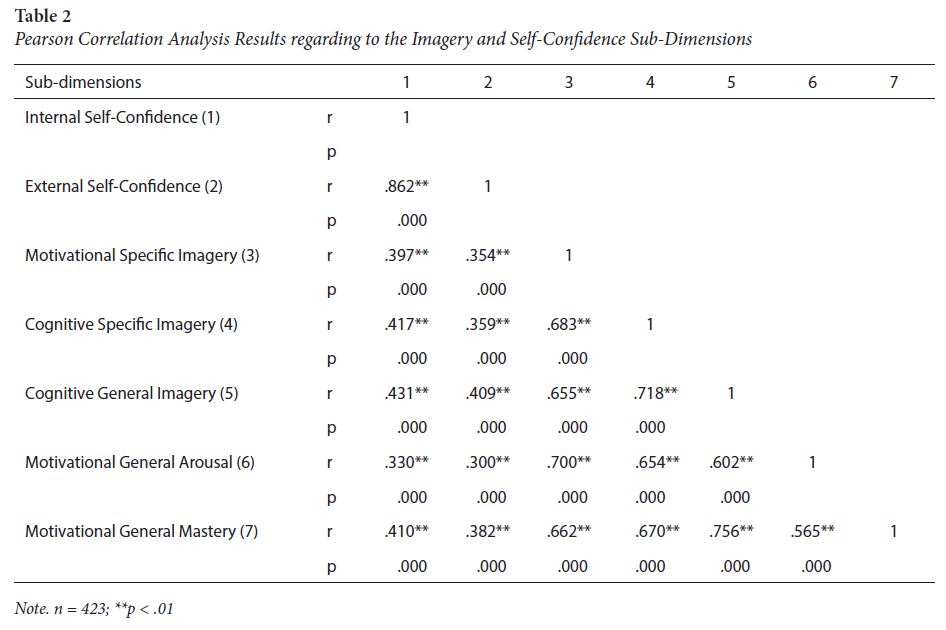The Effect of Imagery Use on the Self-Confidence: Turkish Professional Football Players
Keywords:
professional football player, imagery, self-confidenceAbstract
The aim of this study was to determine the effect of imagery use by the professional football players in Turkey on their self-confidence levels. The study group comprised of 423 professional football players from 24 football clubs from different leagues in 2016-2017 season, Turkey. As data collection tools, in addition to the personal information form, “Sports Imagery Questionnaire” developed by Hall et al. (1998), adapted to Turkish by Vurgun (2010) and “Self-Confidence Scale” developed by Akın (2007) were used. Results showed a positive correlation between internal and external self-confidence and all sub-scales of imagery in the professional football players. Moreover, the cognitive general imagery, cognitive specific imagery, and motivational specific imagery predicted 21.4% of the internal self-confidence. Similarly, the cognitive general imagery and motivational specific imagery predicted 17.7% of external self-confidence for the professional football players. Finally, it was determined that the professional football players’ self-confidence levels will increase as the level of imagery use increases.



